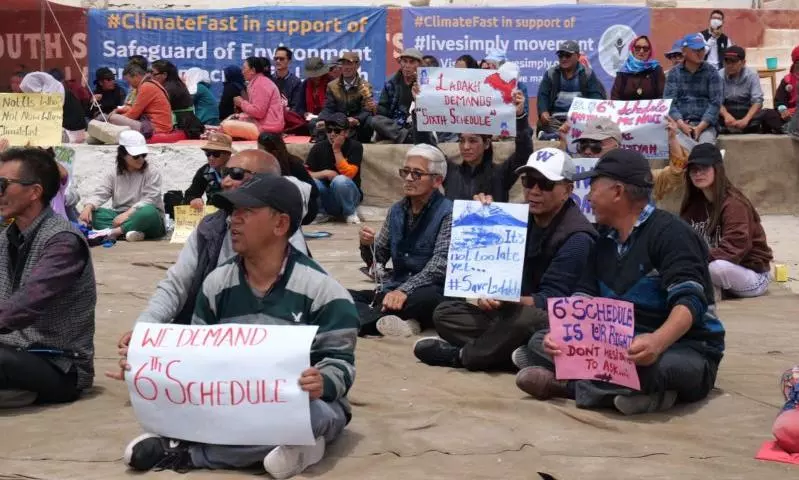
Ladakh Reservation Act amended to cap reservation at 85 pc; EWS excluded
President promulgates ordinance to amend J&K Reservation Act to apply to Ladakh; changes in quota in jobs, autonomous councils, domicile come into effect immediately

The Centre on Tuesday (June 3) introduced new reservation and domicile rules for the Union Territory of Ladakh, reserving 85 per cent of jobs for locals and one-third of the total number of seats in the Ladakh Autonomous Hill Development Councils for women.
The ordinance was promulgated by President Droupadi Murmu under Article 240 of the Constitution, in conjunction with the relevant sections of the Jammu and Kashmir Reorganisation Act, 2019.
The move is aimed at safeguarding local interests as people in Ladakh have been protesting for constitutional safeguards to protect their language, culture and land after the special status of the erstwhile state of Jammu and Kashmir under Article 370 was abrogated in 2019.
Also read | Stripped of J-K quota, no infra at home, Ladakhi students on protest path
The changes in the policies of the reservation in jobs, autonomous councils and domicile will come into effect immediately, according to multiple notifications issued by the government.
Domicile rules
Under the new rules, those who have resided for a period of 15 years in the UT or studied for a period of seven years and appeared in class 10th or 12th examination in an educational institution located in the UT shall be domicile of Ladakh for the purposes of appointment to any post under the UT or under a local or other authority other than cantonment Board.
Children of Central government officials, All India Services Officers, officials of Public Sector Undertaking and autonomous body of Central government, Public Sector Banks, officials of statutory bodies, officials of Central Universities and recognised research institutes of Central government who have served in the UT for a total period of 10 years are also eligible for domicile.
The reservation for the Economically Weaker Sections continues to be 10 per cent.
Second notification
In another notification, the government said that in the Ladakh Autonomous Hill Development Councils Act, 1997, not less than one-third of the total number of seats in the Council shall be reserved for women and such seats may be allotted by rotation to different territorial constituencies.
The rotation of constituencies reserved for women shall be made based on the serial numbers allotted to each constituency by notification in the official gazette.
Also read | Scenic, historically significant Kargil in vain quest for civilian airport
A high level committee led by Minister of State for Home Nityanand Rai was first constituted in January 2023 to address the concerns of the people in Ladakh. It held several meetings with the representatives of Ladakh to find an amicable solution to their demands.
Protest for demands
In October 2024, climate activist Sonam Wangchuk also sat on an indefinite fast in Delhi to press for their demands. After that, talks were held with civil society leaders from Ladakh on December 3, 2024 and again on January 15 this year and on May 27.
The J&K Reservation Amendment Bill was introduced in the Lok Sabha in July 2023. The bill contained amendments to the J&K Reservation Act, 2004, which provides reservation in jobs and admission in professional institutions to members of Scheduled Castes (SC), Scheduled Tribes (ST), and other socially and educationally backward classes (OBCs).

